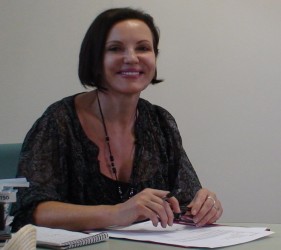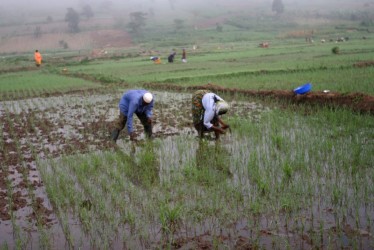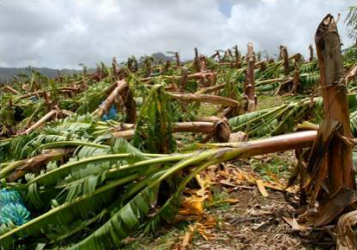 I arrived in Kigali at the end of August, to begin my first experience of working here in Africa. I have looked forward to this for many years. And I know I am especially fortunate to come to Rwanda and Burundi – two of the smallest, but most populous and poor countries in Africa. I had just come from leading DFID’s programme in the Caribbean, where some of the smallest countries in the world exist, many of them islands, (such as Anguilla with a population 7,000 living on an island of 91 square kilometres!) and most are middle income countries.
I arrived in Kigali at the end of August, to begin my first experience of working here in Africa. I have looked forward to this for many years. And I know I am especially fortunate to come to Rwanda and Burundi – two of the smallest, but most populous and poor countries in Africa. I had just come from leading DFID’s programme in the Caribbean, where some of the smallest countries in the world exist, many of them islands, (such as Anguilla with a population 7,000 living on an island of 91 square kilometres!) and most are middle income countries.
Could these two experiences have been any more different? As I begin my posting here, I think often about the similarities and connections between these two very different parts of the world.
 Here in Rwanda (I will write about Burundi in later blogs), the rainy season has arrived, and it is important that it has come on time. Rwanda’s ability to make it through the economic downturn (growth in 2009 is predicted at around 5% or lower, down from 2008’s 11%, but still impressive) has been helped by a couple of good crop years – agriculture makes up about 35% of the country’s economy, and about 80% of its people depend on agriculture for their livelihoods.
Here in Rwanda (I will write about Burundi in later blogs), the rainy season has arrived, and it is important that it has come on time. Rwanda’s ability to make it through the economic downturn (growth in 2009 is predicted at around 5% or lower, down from 2008’s 11%, but still impressive) has been helped by a couple of good crop years – agriculture makes up about 35% of the country’s economy, and about 80% of its people depend on agriculture for their livelihoods.
There are real signs of growth here in Kigali: the constant building of upscale housing on the sides of the rolling hills that make up this beautiful city; the new glass and concrete commercial buildings going up in the city’s centre, and the thriving downtown commerce. There is a sense of purpose and determination here: a will to rebuild a country in a new mould, delinked from old colonial and ethnic paradigms and connected to a forward-facing and self-reliant vision of Africa.
Rwanda’s bid to be part of the Commonwealth was decided last week at the Commonwealth Heads of Government meeting in Trinidad and Tobago - which reminds me again of the links between Rwanda and the Caribbean, this year the host, and where 17 nations are members of the Commonwealth. I’ll write about that in my next blog.

As the rains began here in September, my husband, still in Barbados finalising some business, told me on the telephone: “It’s raining here, too”. It was the hurricane season in the Caribbean, a region experiencing intensifying weather patterns due to climate change. There the season’s rain signals the threat of intense storms and greater coastal damage. Here it holds the promise of a good harvest, but too much rain can damage crops, roads and buildings. Rwanda too, feels the effects of intensifying weather from climate change. I am seeing parallels that point strongly to the need, both in Africa and in the Caribbean, to unite national voices into strong regional positions at the Copenhagen meeting on Climate Change this week.
In this note I have not reflected on the most obvious historical and cultural connections between Africa and the Caribbean – relating to how enslavement of Africans, and resistance to, it shaped the history of the Caribbean. But there are constant reminders.
A few weeks ago, I made my weekly half-hour trek along the road to the supermarket, walking with many others. Dodging the taxi motorbikes, I noticed among my fellow walkers a young man, wearing a tee shirt with Bob Marley’s famous face stencilled in bright colours. I couldn’t help but wonder how much the young walker knows about that son of the Caribbean and his message of freedom, love and unity, and of his legacy through his and his widow’s foundations linking Jamaica and Africa in the fight against poverty.

14 comments
Comment by Timothy Njoroge posted on
Welcome to Rwanda, Elizabeth!
It is amazing to note how much info you have gathered about Rwanda and Burundi within a very short time. These two countries lost almost everything to do with their cultural virtues through a colonial system that tried to erase them over a period of 40 years, up to 1994.
Once you read "From the Heart of Africa", a collection of short stories from Rwanda, you will realize that the early Rwandan was one. He was also courageous, loving and extremely tolerant. You will therefore learn that genocide would not have been possible, had these virtues been present in Rwanda in 1994. Like the new glass and concrete commercial buildings going up in the city’s centre, and the thriving downtown commerce, these virtues should also be rehabilitated.
Comment by Jackson posted on
You are most Welcome in our country with peace and Love from my heart.
Comment by Emmanuel Murangira posted on
Most Welcome to Rwanda and Burundi; It is encouraging to see some one with such a profound interest in both Rwanda and Burundi. I also was apointed as representative for Rwanda and Burundi by a UK charity Tearfund and have over the last year been working with local partners supporting communities in the fight against poverty.
Most welcome to Rwanda and Burundi and looking forward to future collaboration
Comment by Helen Hintjens posted on
Interesting to hear about your combination of experience, Elizabeth Carriere. I too have worked (and written) on both the Caribbean (including Anguilla, where I interviewed all the old hands) and on Rwanda. A greater contrast there could almost not be, and yet I am glad to have studied and visited both. My sincere wish is that you are able to get out of Kigali as often as possible. In previous years, I believe this was a weakness of the DFID Kigali office - there appeared to have been some reluctance to visit rural areas. May I recommend a visit to the office of Urunana Development Communication, through whom you will learn about the fantastic work they are doing on issues of gender and health, through the extremely popular radio soap Urunana. The Director is Narcisse Kalisa and if you were able to meet him and the staff of UDC, I feel this might provide you a really unique insight into Rwandan realities not so readily available through other channels. I sincerely wish you well in your new post, and think it's great you have this blog.
Comment by Amos Maunde posted on
Am in Kenya but have a great interest in the people of Rwanda.It is the choice to make the difference that inspires one reading about these brothers and sisters. As the glass and concrete buildings come up in Kigali, it is evident that the resolve to be leaders in their own right and an example to the rest of Africa and the world already came up in the hearts of the people of Rwanda.
Although my career has been in the corporate world, i have profound respect for the DFID's, the Tearfunds and others who all help give people in varied communities a dignified life. Kudos to Elizabeth, Emmanuel, Helen and all they represent.One day i will visit Kigali.
Comment by Susan Slater posted on
Thanks for an interesting blog.
My sense is that the old ethnic paradigms are still very much alive in today's Rwanda - even if coverage of the issues in The New Times is limited to accusations of divisionism.
I would love to hear about DFID's view on the government's treatment of Victoire Umuhoza, President of the United Democratic Forces of Rwanda (and would-be Rwandan Presidential candidate, were she not under house-arrest and unable to register her political party).
How does DFID balance the need to work with the present regime against the need - or moral imperative - to apply pressure to open up the political space, so that all Rwandans may one day be represented in a democratic process? And how oppressive is too oppressive, in terms of DFID providing direct budget support?
Comment by Ciara posted on
Warm welcome to Elizabeth!. Im sure you'll love the period you'll work in Rwanda.
People visiting Rwanda for the first time get suprised always bcse they see the difference btn the reality on ground and what's being shown on TVs by journalists.
@ Susan Slater, i think DFID is not working as a political mediator. No divisionism in Rwanda unless if u need to inject into them again. Rwanda's have no complaints on political space, it shld't hurt those who are not concerned
Comment by manzi .N posted on
It is nice to hear from you and how you really were looking forward to working in Africa and was fortunate enough to land Rwanda.
I would love to hear your views about the current regime and its political agenda and the accusation levied on the regime interms of not opening up the political space.
How does DFID balance its support to the regime accused of intorelant to opposition, independent media, turning Rwanda into a police state?
Isn't it time for DFID and other development partners to stand up and support the voiceless masses who are afraid to talk fearing reprisals?
What is your views on the judicial system in the Rwanda? Are accusation that it is not independent far fetched given the recent imprisonment of peter Erlinder, Bernad Ntaganda Victoire Ingabire Umuhoza (President of the United Democratic Forces of Rwanda) and others.
Are the accusation that the local admnistration in its current state is an arm of the ruling party instead of the government?
What is your views on the allegation that the ruling elite have enmassed government money given the recent accusation of planes that are alleged to belong to the president. Are accusation that the ruling party does hinder private sector development far fetched given the ongoing ruling party's involvement in the private sector ( Horizon construction company, Methane gas project, Cement company, and many others)
what are your views on the fighting corruption in Rwanda. Is it true that fighting corruption is used as a political tool to suppress opposition alongside the law on genocide denial and divisionism?
What is your view on the allegation that the regime has instilled fear in people to such an extent that Rwandans can not talk freely without fear or favour?.
Lastly, what is your view on the allegation that development partners including DFID should be held accountable to the atrocities the present regime is accused of and are ignoring the cry pf the population.
Comment by jackonicks posted on
welcome Elizabeth to this peaceful country, actually let us real Rwandans who love our country to be peaceful and developed sustainably speak out for most Rwandans who are they want peace and develop the country as DFID has in its Mandate, the Media is lying with things which are not on the ground actually, these journalists and opposition are fighting for their own interests not for us citizens of this county , for us the citizens of Rwanda what we need peace and sustainable development in our country and in the region. what we need from you as development partner is to support us in our development i think Madam Elizabeth you can testify that since the time you have spent here. those oppositions madam Elizabeth want to take us in violence nothing else yet we tired of that we need development as the mission of DFID in this country.otherwise current leadership is better them them for sure we sleep as late as possible and we wake up as earlier as possible and thats what we need.
Comment by Bella Mendes posted on
The government had also tried so many time for these poor areas but nothing has been changed.If proper facilities are provided then its possible for them to come out from this poor life.
Comment by Apollo Nyamasenga posted on
Dear Elizabeth,
You are warmly welcome to this land of thousand hills; a country that have long suffered from bad leadership. Am really inspired by your commitment and DFID to work with these two governments that have rescued their respective citizens from the mouth of dragons ¨the former regimes ¨ the perpetrators of genocide and the alike. I encourage you and DFID to render full support to these governments and to the well being of their citizens and keep a deaf ear to street politicians and journalist who exchange their words with bread. Let us leave wananchi give their independent judgment.
Comment by kanyandekwe posted on
Hi Elizabeth, that's a good view of my motherland (RWANDA), however talking about Bob Marley, I bet you havent' chatted with many Rwandans or Africans. Bob was and still is an icon in Africa, if you were in Kigali in the 80s you would've had a taste of that. Du reste, keep up the good work with DFID in Rwanda and Burundi. Amahoro.
Comment by Connie posted on
Having lived in the Caribbean for many years I can imagine there must be synergies in the lifestyle of these two areas of the world. I suspect people's life chances in Rwanda are considerably bleaker than for many in the Caribbean.
Comment by Lea Jellinek posted on
nice to find you Elizabeth.
I continue with volunteering work in Indonesia. Seems you went to the Carribean after Indonesia.
warmest regards
Lea